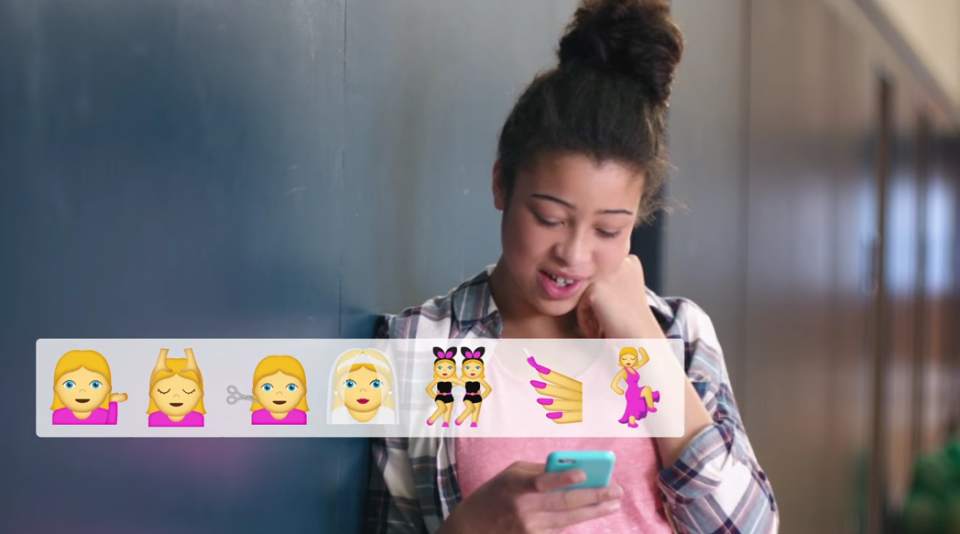How those cute emojis are actually harming young women
#Twinning in bunny ears, getting your nails done, playing princess….it’s easy to see why emojis have become such a huge part of our daily communication.

But have you ever taken the time to consider how they’re actually impacting the generation who users them most?
That’s what Always is aiming to accomplish in their latest #LikeAGirl video.
“Ever since we started our journey to stop the drop in confidence girls experience at puberty, we have been deepening our understanding of this critical stage. We know that girls, especially during puberty, try to fit in and are therefore easily influenced by society. In fact, we found that seven out of ten girls even felt that society limits them, by projecting what they should or should not do, or be,” says Michele Baeten, Associate Brand Director and lead on the #LikeAGirl campaign. “The girls in emojis only wear pink, are princesses or dancing bunnies, do their nails and their hair, and that’s about it. No other activities, no sports, no jobs.”
“The realization is shocking.”
ALSO SEE: #LikeAGirl Super Bowl ad tops Twitter, spurs haters
She adds that while societal limitations are of course far more broad and complicated, they “realized that stereotypical, limiting messages are hiding in places as innocent as emojis.”
It’s especially important when, according to a survey conducted by Always, 82 per cent of females age 16-24 use emojis on a daily basis, with 71 per cent of the same age group use them multiple times a day.
In the video, Always asks girls to weigh in on the emojis offered.
“There’s no girls in the profession emojis, unless you count being a bride a profession,” says one.
“I’ve got rock climbing, biking, playing basketball,” notices another. “None of the girls are doing this.”
“Except for the surfer, that one’s a girl,” says another teen. “Nope. It’s just a guy with long hair.”
ALSO SEE: Pantene’s new ads remind us that dads play a key role in their daughters’ development
According to the Always survey, 54 per cent of girls think that emojis are stereotypical and 75 per cent want to see female emojis portrayed more progressively, including options showing female athletes or law enforcement officers. A whopping 67 per cent say that the available female emojis imply that girls are limited in what they can do.
“Society has a tendency to send subtle messages that can limit girls to stereotypes,” says Lucy Walker, the filmmaker behind the project. “ As someone who has studied sociolinguistics, I know the kind of impact even seemingly innocuous language choices can have on girls. It was so interesting to hear these girls talk about emojis and realize how the options available to them are subtly reinforcing the societal stereotypes and limitations they face every day.”
What do you think about how females are portrayed in emoji form? Do you think it really impacts young girls? Let us know by tweeting @YahooStyleCA.


